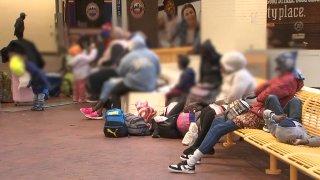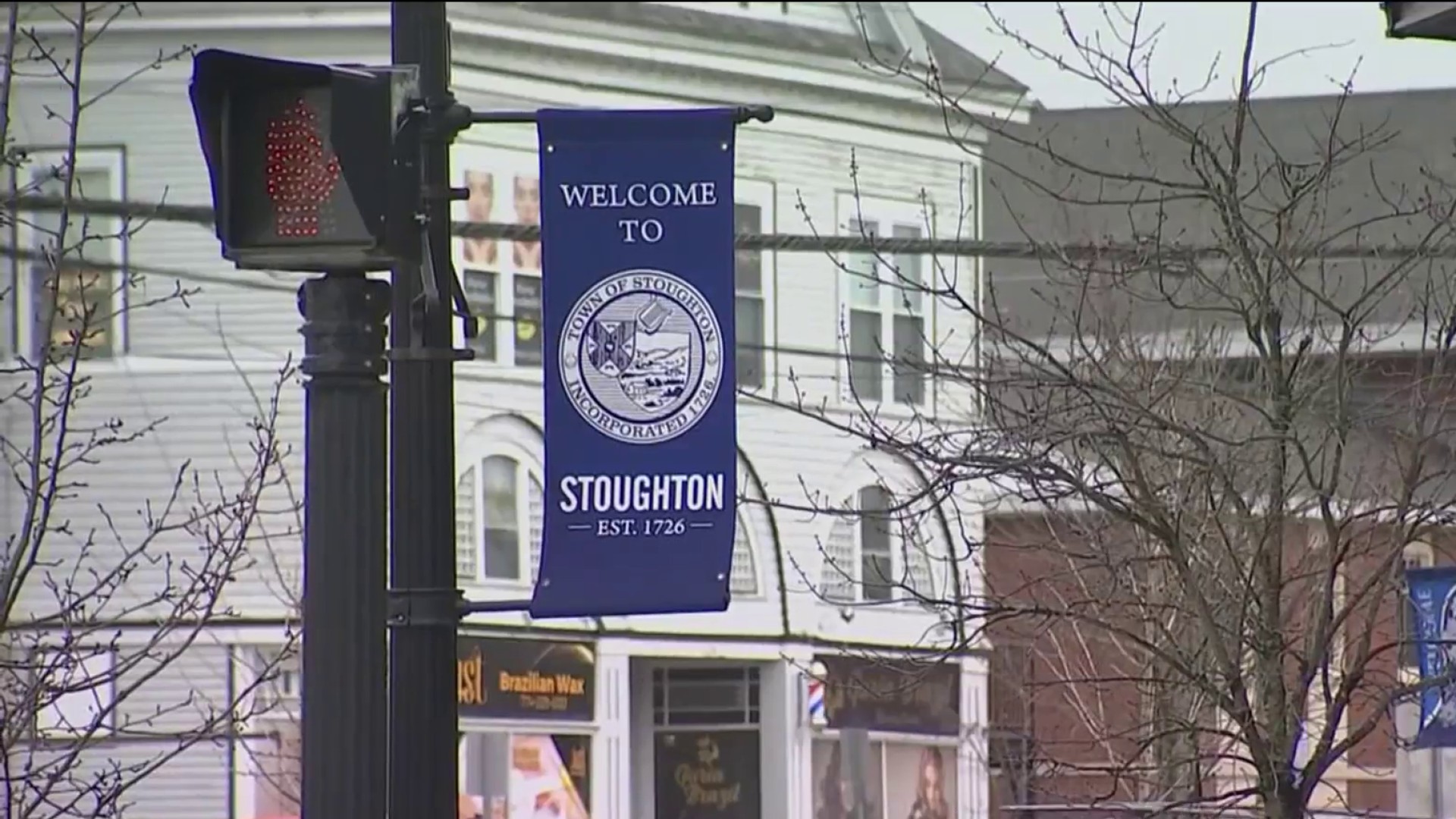
Gov. Maura Healey has frequently pointed to getting more migrants authorized to work as a key step in moving people out of the state's overwhelmed emergency family shelter system, but the number of new arrivals who have work authorizations has stagnated since December.
About half of the families in the state's Emergency Assistance family shelter system are newly arrived immigrants, refugees or asylum-seekers, many of whom are not authorized to work in the United States. As the number of immigrants coming into Massachusetts has skyrocketed in the last year, Healey has repeatedly called on the federal government to expedite the work authorization process to help migrants who are eager to work leave state-funded housing and support their families financially.
With family shelter cost estimates of close to $1 billion per year, both the House and Senate are now considering putting time limits on how long a family can stay in emergency shelter. Shelter limits would add urgency to the need for these authorizations as parents would need to be able to work to pay for housing once they are no longer able to stay in the shelter system.
The House has proposed a nine-month limit on shelter stays, while the Senate will take up a bill later this week to impose a nine-month limit with opportunities for extensions. Either option would be a significant change to the system, where most families stay for over a year, according to the Healey administration.
Get New England news, weather forecasts and entertainment stories to your inbox. Sign up for NECN newsletters.
"The federal government is allowing people into the United States. And my position has been, if you're going to allow people in, then work with us states on getting people working -- expedite those work authorizations," Healey said last fall.
The administration held two "clinics" in November with the U.S. Department of Homeland Security to help process work authorizations for shelter residents, where they said they helped "thousands" of new arrivals become eligible to work in the country.
Though the clinics seemed to lead to a sharp increase in work authorizations, that number has since stagnated.
As of Dec. 12, 2023, 813 newly arrived immigrants, refugees or asylum-seekers in Massachusetts' shelter system had federal work authorizations. That number climbed to 2,713 individuals two weeks later.
Since late December 2023, however, the number of non-citizens living in shelters and able to legally work in the U.S. has remained unchanged, according to reports from the governor's administration.
The most recent report on the EA family shelter system to come out of the Executive Office of Housing and Livable Communities showed that as of March 7, there were still only 2,713 of these individuals with work authorizations.
A Healey aide said the work authorization numbers are derived from the U.S. Department of Homeland Security and recommended reaching out to them.
Despite this stagnation, Healey continues to point at the success of the November clinics in expediting this process that she deems as critical to helping people out of shelter and opening up space for other families in need.
At an unrelated press conference at the State House on Monday, responding to a reporter's question about whether the migrant population is an "untapped labor market," Healey replied, "I do. That's why I've focused from the outset on getting work authorizations."
"I'm proud that we as a state have really led when it came to getting folks processed. I called on the federal government to act for a long long time, and I also said we're not going to wait. And so we were able to get folks from DHS here on the ground... That work has continued," she said.
The News Service followed up, pointing out there have been no new work authorizations reported by her office since late December.
"The work does continue... We continue to process people for work authorization," Healey replied. "It's a good thing right now that Salem Hospital was able to fill its janitorial and cleaning staff. It hadn't been able to do that for years. So we're continuing to look for opportunities."
She did not directly respond to a question on why her administration had not reported an increase in work authorizations over the last three months.
In the time since late December when the number of new migrants eligible to work flatlined, hundreds of families have been added to the waiting list of folks waiting to be let into shelter. Around 400 families were on the waitlist -- waiting for a spot after Healey capped the system at 7,500 families last fall. By early March, that number had reached about 780 families.
Earlier this month, the Healey administration announced partnerships with eight resettlement agencies to help families exit shelter by connecting with resources such as housing, job searching and social services. Healey's office said the initiative, funded by money included in last year's supplemental budget, will enable families to access permanent housing.



